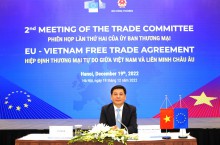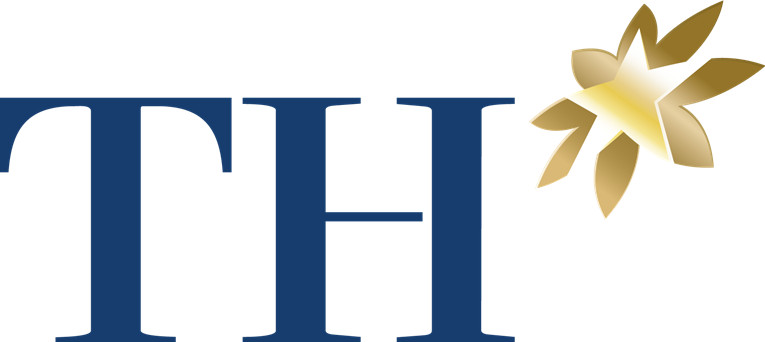The News
Comparison of the UKVFTA and the EVFTA agreement
The UKVFTA basically inherits the commitments of Vietnam and the UK in the EVFTA with some modifications in trade in goods, trade in services, government procurement and other areas.
1. Trade in goods
The UKVFTA basically inherits the commitments of Vietnam and the UK to reduce and eliminate tariffs in the EVFTA, including the tariff reduction/elimination schedule.
In addition, for tariff lines that the EU has committed to give Vietnam the tariff-rate quota (TRQ) with in-quota tariff of 0%, the UK gives Vietnam the amount of quota for these items on the basis of EU statistics on actual bilateral trade between Vietnam and the UK in the period 2014 - 2016. Accordingly, the amount of TRQ that the UK gives Vietnam is as follows:
Items | EU quotas for Vietnam (tons) | UK quotas for Vietnam (tons) | Total amount of new EU and UK quotas for Vietnam (tons) |
|---|---|---|---|
Eggs and yolks of poultry eggs | 500 | 68 | 568 |
Garlic | 400 | 54 | 454 |
Sweet corn | 5.000 | 681 | 5.681 |
Millted rice | 20.000 | 3.356 | 23.356 |
Ground rice | 30.000 | 5.001 | 35.001 |
Milled rice meets the authenticity requirements | 30.000 | 5.001 | 35.001 |
Cassava starch | 30.000 | 12.215 | 42.215 |
Tuna | 11.500 | 1.566 | 13.066 |
Surimi | 500 | 68 | 568 |
Sugar and other products containing high sugar content | 20.000 | 2.724 | 22.724 |
Special roads | 400 | 54 | 454 |
Mushroom | 350 | 48 | 398 |
Ethanol | 1.000 | 136 | 1.136 |
Mannitol, Sorbitol, Dextrin and Other Denatured Starch Forms | 2.000 | 272 | 2.272 |
In addition, the UK also committed to review the increase in TRQ for Vietnamese rice products after 3 years from the effective date of UKVFTA. Thus, it can be said that the UK's commodity trade commitments have been inherited in their entirety and bring additional benefits in terms of TRQ for 14 preferential items. This benefit is especially significant when the UK is one of the potential import markets for TRQ items (e.g. rice, cassava starch, surimi).
Other contents related to trade in goods: The two sides agreed to inherit all commitments in EVFTA.
2. Trade in services
The two sides agreed to basically inherit all commitments in EVFTA, including common obligations on trade in services and investment including:
+ Market access: For industries and sub-sectors listed in the specific Schedule of Commitments, unless there is a reservation specified in the Schedule of Commitments, the two parties commit not to apply restrictions related to: (i) the number of enterprises allowed to participate in the market, (ii) transaction value, (iii) the number of activities, (iv) foreign contributed capital, (v) the form of legal entities, (vi) the number of natural persons employed.
+ National treatment: For the sectors/sub-sectors listed in the Specific Commitment Schedule, the two parties commit to give each other's service providers and investors no less favorable treatment than the treatment for their services and similar service providers and investors, unless otherwise provided in the Schedule of Commitments. With respect to the investor's enterprises of one Party already operating in the territory of the other Party, the two Parties undertake to prescribe the same treatment as the enterprises of the investors of their respective countries, except for the exceptions set out in the Schedule of Commitments and other specific exceptions.
+ Most-Favored-Nation Treatment: The two parties commit to giving each other's investor investment a less favorable treatment than the treatment afforded to the investor's investment by a third party. Certain services are not subject to this treatment, including: information and communication, culture, sports and recreation, air transport and air franchise, fisheries and aquaculture, forestry and hunting, mining and oil and gas.
+ Operational requirements: For the sectors/sub-sectors listed in the specific Schedule of Commitments, the two parties commit not to apply operational requirements such as: stipulating a certain rate or level of export for goods or services, specifying a certain rate or level of localization, binding the quantity or value of imports to the quantity or value of exports or foreign currency revenues associated with the investment...
Besides, UKVFTA makes certain adjustments as follows:
- Banking services: Vietnam agreed to consider favorably allowing UK financial institutions to increase their foreign holdings to 49% of charter capital in 01 joint stock commercial bank of Vietnam. Similar to the EVFTA, this commitment is only valid for 05 years (at the end of 05 years, Vietnam will not be bound by this commitment), does not apply to 04 joint-stock commercial banks in which the state holds dominant shares, namely BIDV, Vietinbank, Vietcombank and Agribank. In addition, the implementation of this commitment will have to fully comply with the regulations on M&A procedures as well as safe and competitive conditions, including limit on share ownership rate applicable to each individual and organization investor on the basis of national treatment and, in accordance with the laws of Vietnam.
- For certain service industries (such as legal advice services; aircraft leasing services; aircraft leasing services with pilots; sea freight services, excludinglocal transport): The UK amends its schedule of commitments to comply with UK domestic legislation.
3. Government procurement
Vietnam and the UK agreed to inherit the commitments in the EVFTA, with adjustments to the obligation to post tender summary notices in English on the portal. Accordingly, the UK is also committed to providing technical assistance to Vietnam to fulfill this obligation. However, this obligation only applies to Vietnam after the system of automatic translation and posting of summary notices in English is established and operated in Vietnam thanks to technical and financial support from the EU.
In addition, Vietnam's roadmap to implement commitments will continue to be inherited from EVFTA.
4. Intellectual Property
Similar to other contents, the intellectual property commitments of the UKVFTA Agreement are essentially successors to the EVFTA, and therefore will include commitments on copyrights, inventions, inventions, commitments related to pharmaceuticals and geographical indications (GI), etc. Vietnam's intellectual property commitments are in accordance with current laws.
When the Agreement comes into force, the UK will continue to protect Vietnam's 39 geographical indications. Vietnam's geographical indications are related to famous agricultural products and foods with high export potential such as Moc Chau tea, Buon Ma Thuot coffee, etc. This will contribute to creating conditions for some types of Vietnamese agricultural products to build and affirm their brands in the UK market.
In addition, although the UK is no longer a member of the EU, GI whose the country of origin is the UK, including Scotch Whisky, Scottish Farmed Salmon, and two cross-border GI "Irish Cream" and " Irish Whiskey/Uisce Beatha Eireannach" will continue to be protected in Vietnam under the UKVFTA.
5. Rules of origin
In addition to inheriting the majority of commitments in Protocol 1 regulating goods of origin and administrative cooperation, the two sides committed to an expanded co-ordination mechanism that allows their goods to use raw materials imported from EU member states (as well as Andorra and the Republic of San Marino) to produce final products for export to the other country and enjoy preferential tax rates of the Agreement.
For Vietnam, this aggregation mechanism may not bring much benefit to our exports in the short term, but in the long run it will help form production chains between the two sides as well as with the EU. In addition, due to the unprecedented and complex implementation of the expanded pooling mechanism and the need for review during implementation, the two sides agreed to develop a combined review mechanism in the direction that the review will be carried out in the 3rd year from the entry into force of the Agreement, towards putting in place the processes needed to adopt the extended community. In case the two parties cannot agree on the process, each party will have the right to apply the domestic process in terms of aggregation.
6. Other contents
The UKVFTA also inherits the EVFTA’s Chapters related to competition, state-owned enterprises, sustainable development, cooperation and capacity building, legal-institutional.



